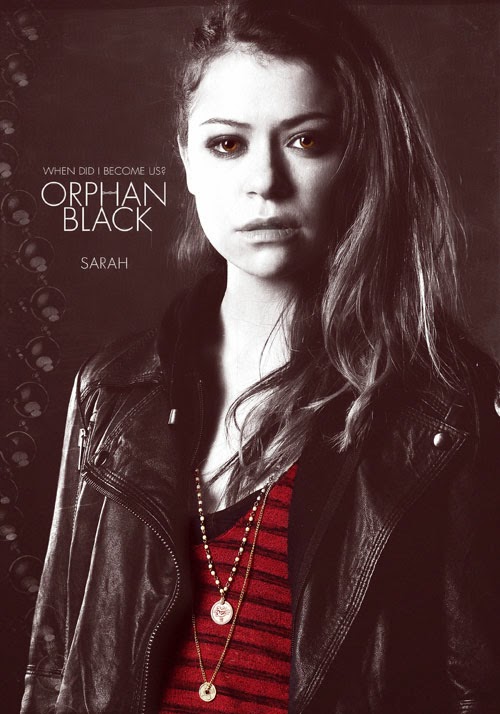 |
| Image from bbcamerica.com |
Today - er, yesterday - I want to talk a little bit about positive character growth. I wanted to write this post Saturday night immediately after the season finale of Orphan Black, but I was still in full-on book mode.
Alongside BBC's Sherlock, Orphan Black is easily my favorite currently-running show. It just wrapped up its second season with some major shockers, and what felt like a for-the-moment win for Sarah. *Silent cheering*
It always rubs me the wrong way when someone recommends a show to me with the assertion that it's "the best show on TV, hands down, and you're crazy if you're not watching it." I never care much for the most buzzed about shows. But along came Orphan Black, and I think it's fantastic. What was the difference? Character growth. When I really broke the show down and stacked it up with Breaking Bad and Sons of Anarchy and similar counter-culture shows, I realized the big difference: Orphan Black's characters are growing; the characters on the other shows are slowly devolving into the post-modern depiction of a ruthless mankind trapped in a chaotic universe of circumstance. So I tell people this: yes, OB is a great sci-fi thriller with lots of twists, turns, shocks, and OMG moments; but the real hook, for me, is the character development.
In the show's first season, we meet central character (and clone), Sarah, a British punk rock grifter who sees a chance to assume another woman's life, and takes it. As a viewer, you are immediately shocked and fascinated. But if you stick around, you're rewarded with Sarah growing - all of her sister clones growing - as a mother, daughter, sister, as a human being. As the drama rains down on these characters, they're forced to make some very gray-area choices; they slip up, they do plenty of not-so-nice things, but all the time they're growing stronger, and more committed to the people they love, and you find yourself rooting for them like crazy. And rather than watch a set of characters descend to the absolute lowest depths of humanity, you're watching them claw hand-over-hand to the top, finding better versions of themselves as they fight for survival and freedom.
In addition to the clones, there's a supporting cast of many shades. The bad, the shady but loveable - Mrs. S - and the truly good who you can count on no matter what - Felix and Art. Having those dependable, easy to love characters, the rock solids, doesn't make a story less dramatic - it adds depth. Bad is only bad if there's good to balance it out.
It feels like the fiction standard right now is to present an audience with truly despicable characters and challenge the audience to care about them anyway. I think it's important, as a creative writer, not to discount the kind of positive growth in a character that elevates them, rather than destroys them utterly.

No comments:
Post a Comment